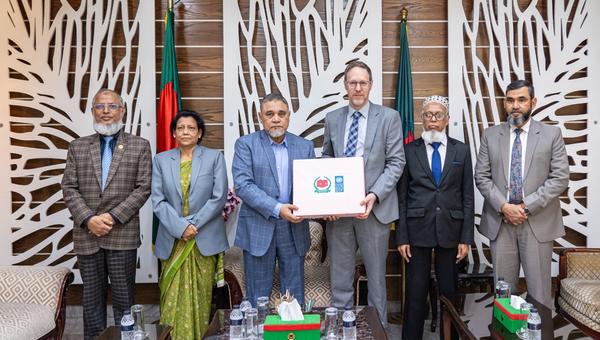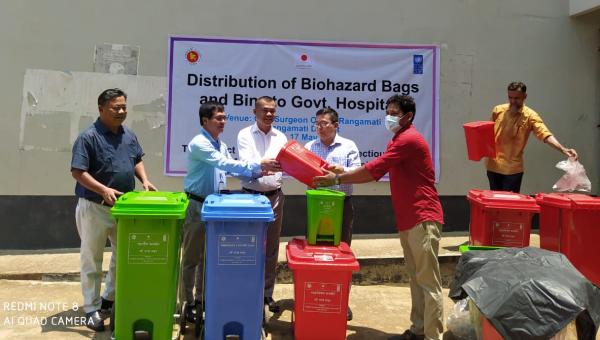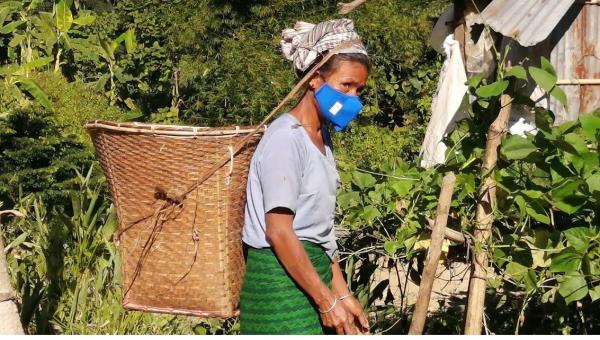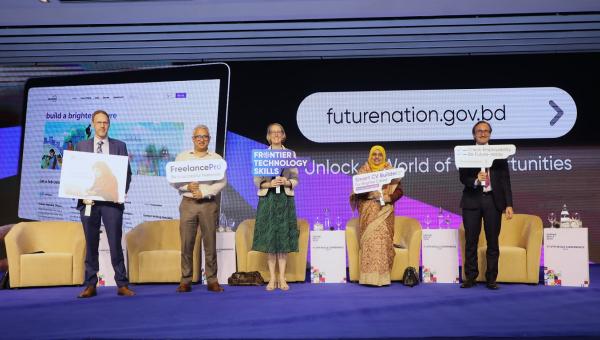Gender-Responsive Coastal Adaptation (GCA)
Background
The Gender-responsive Coastal Adaptation (GCA) project empowers climate vulnerable coastal communities, especially women, as ‘change agents’ to plan, implement, and manage resilient livelihoods and drinking water solutions. GCF resources leveraged by GoB co-financing, is ensuring that (i) communities, especially women, adopt and implement climate-resilient livelihoods; (ii)value-chains/market linkages for these alternatives, resilient livelihoods are strengthened to ensure their adoption, sustainability, and scale; and (iii) Communities have knowledge and capacity to continue to monitor, safeguard and adapt livelihoods and livelihood strategies to evolving climate risks. The project is also utilizing GCF and GoB resources to support investments in and management of climate-resilient drinking water solutions to secure year-round, safe drinking water supplies for the targeted communities. Access to reliable, safe drinking water enables the communities, especially women and girls in targeted households, to invest the resulting time & cost savings and health co-benefits in enhanced livelihoods and income-generating and/or educational opportunities. The project is expected to bring gender transformational changes in the households and communities promoting shared responsibilities of unpaid care work to addressing the gender norms that restricts women to benefit from high value and productive roles.
Area of Work
Climate-resilient livelihoods, focusing on women, for enhanced adaptive capacities of coastal agricultural communities Gender-responsive access to year-round, safe and reliable climate-resilient drinking water solutions
Strengthened institutional capacities, knowledge and learning for climate-risk informed management of livelihoods and drinking water security
Significant Achievements
Focused on women of the coastal agricultural communities, a total of 1020 Women Livelihood Group (WLG) have been formed so far to ensure climate-resilient livelihoods for them and enhancing their adaptive capacities.
Ensuring gender-responsive access to year-round, safe and reliable climate-resilient drinking water solutions for 30,934 household beneficiaries and installing Household based Rainwater Harvesting Systems (HHbRWHS), Community based Rainwater Harvesting Systems (CsRWHS), Institution based Rainwater Harvesting Systems (IsRWHS) and Pond based Ultra Filtration Systems in the five project upazilas of Khulna & Satkhira.
Strengthening the institutional capacities, knowledge and learning for climate-risk informed management of livelihoods and drinking water security of the relevant government officials & stakeholders.
Objectives
The objective of the project is to support the Government of Bangladesh (GoB) in strengthening the adaptive capacities of coastal communities, especially women, to cope with the impacts of climate change-induced salinity on their livelihoods and water security. Also to address information, technical, financial, institutional barriers to implementing and managing resilient livelihoods as well as drinking water solutions for the vulnerable communities in Khulna and Satkhira, two southwestern coastal districts of Bangladesh.

 Locations
Locations





